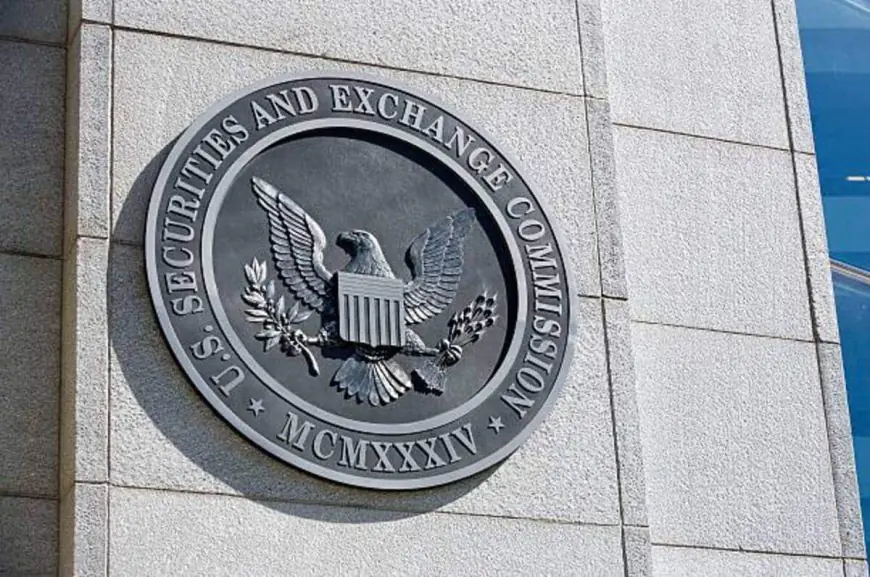SEC Anti-Crypto Lawyers Resign Amid Rebuke from Judge Over Handling of DEBT Box Case – Will Gary Gensler Follow?
Michael Welsh and Joseph Watkins, lead attorneys in the SEC case against Debt Box, resigned after a federal judge criticized the agency for “gross abuse” of power. Judge Shelby criticized attorney Michael Welsh for misleading the court and attempting to obscure the truth. Two attorneys from the United States Securities and Exchange Commission (SEC) have [...]


- Michael Welsh and Joseph Watkins, lead attorneys in the SEC case against Debt Box, resigned after a federal judge criticized the agency for “gross abuse” of power.
- Judge Shelby criticized attorney Michael Welsh for misleading the court and attempting to obscure the truth.
Two attorneys from the United States Securities and Exchange Commission (SEC) have resigned after a federal judge criticized the agency for “gross abuse” of power and acting in “bad faith” in a case against the crypto platform Debt Box. Michael Welsh and Joseph Watkins, lead attorneys in the SEC case against Debt Box, stepped down earlier this month following a scathing ruling by Chief Judge Robert J. Shelby in Salt Lake City, Utah.
In a ruling declared in March, the US Court of International Trade fined on the Securities and Exchange Commission for making false claims and misrepresentations in its case against Digital Licensing Inc., which is popularly known as Debt Box. The resignations of Welsh and Watkins were after receiving warnings of dismissal if they choose to stay at the agency. Sources informed that the two individuals were given termination threats.
For instance, when Welsh was calling that DEBT box was closing bank accounts and sending assets to some offshore bank which later was found out to be a false claim. The SEC referred to this confusion an mishap in communication, and afterwards, Welsh apologized to the court. In spite of all the endeavors to rationalize the SEC actions, it was finally the pressure of the public opinion that forced to drop the case in January.
Debt Box Crypto Fraud Allegations
The Securities and Exchange Commission’s case with Debt Box came from accusations of a $50 million crypto fraud heist. In August of 2022, the agency applied for emergency relief in order to take a pursuant action against the Utah-based company, so it could confiscate the company’s assets, restraint orders on the company’s principals, and hence, stop its operations.
Despite this, Judge Shelby criticized the SEC’s proof, saying that it “lacked any foundation” and was presented in “artful ways”. The judge’s scathing rebuke revealed how the agency was trying to “gentle and overstate” its misdeeds, referring to Welsh’s determined inappropriate statements during the hearing.
The presiding Judge, Judge Shelby, granted the SEC a “show cause motion” and hence they were required to explain their actions. The SEC did admit to its lack of commitment to transparency, but it disputed any formal sanctions. Shelby mentioned how the conduct of the Michael Welsh attorney was wrong that it misled the judge and trying to hide the truth. On this matter, the SEC enforcement chief Gurbir Grewal regretted the department’s part and the actions were being addressed through the appointment of new attorneys and mandatory training for enforcement staff.
Regulatory Scrutiny and Industry Criticism
Criticism has mounted against the SEC’s approach under Chair Gary Gensler, particularly regarding the agency’s “regulation by enforcement” strategy. Critics argue that this approach has increased regulatory uncertainty in the industry, stifling innovation and undermining U.S. competitiveness in the digital asset space.
High-profile enforcement actions against crypto platforms have included lawsuits against crypto exchanges Coinbase and Binance, as well as the agency’s forthcoming action over the decentralized finance platform Uniswap. Many industry stakeholders advocate for clearer regulatory guidelines to foster innovation and ensure compliance within the burgeoning digital asset landscape. The Debt Box case and the subsequent resignations of SEC lawyers have further fueled the debate surrounding the agency’s handling of crypto-related cases.
The resignations of Michael Welsh and Joseph Watkins signal broader implications for the SEC’s enforcement strategies and its handling of crypto-related cases. The agency’s credibility has come under scrutiny, with questions raised about its ability to regulate the rapidly evolving digital asset space effectively.
What's Your Reaction?









































































































